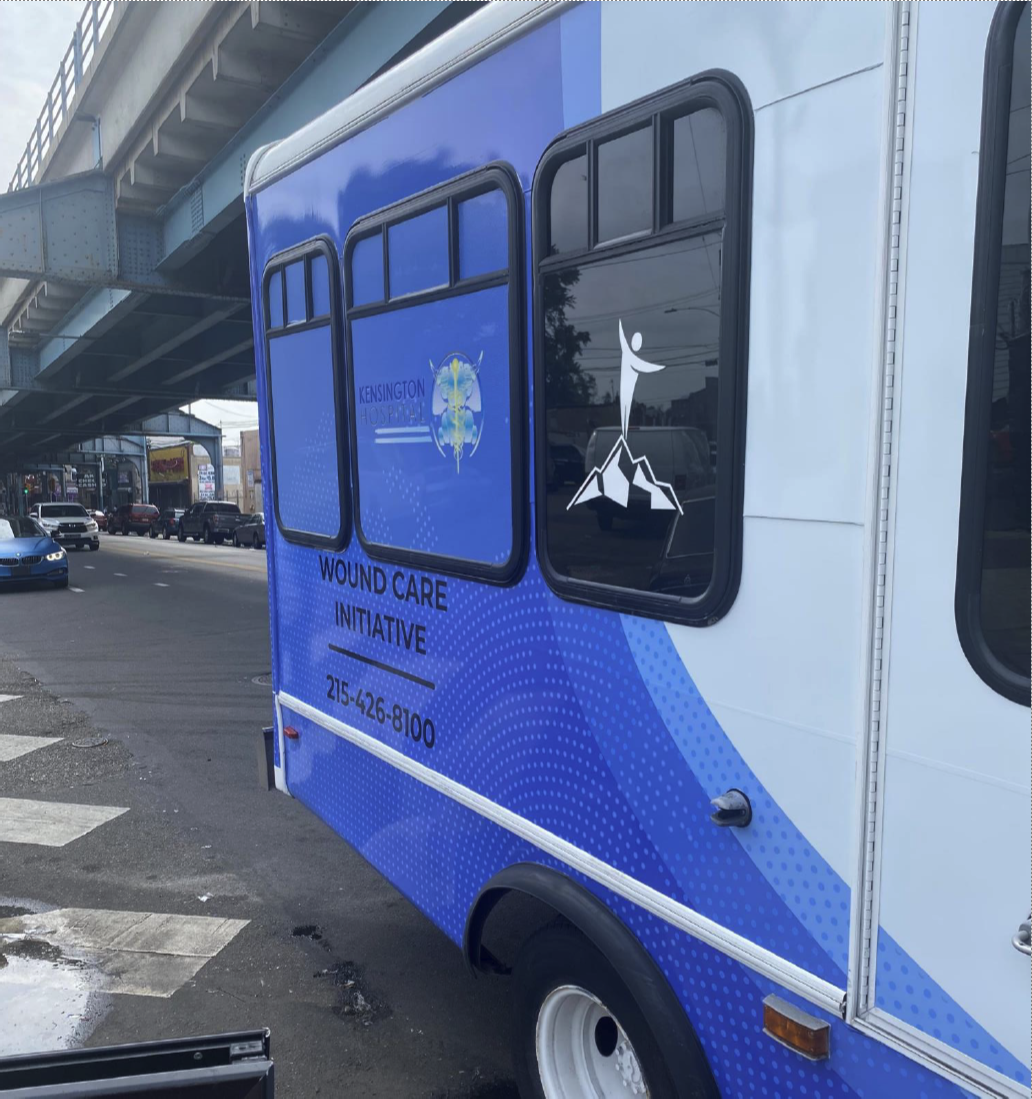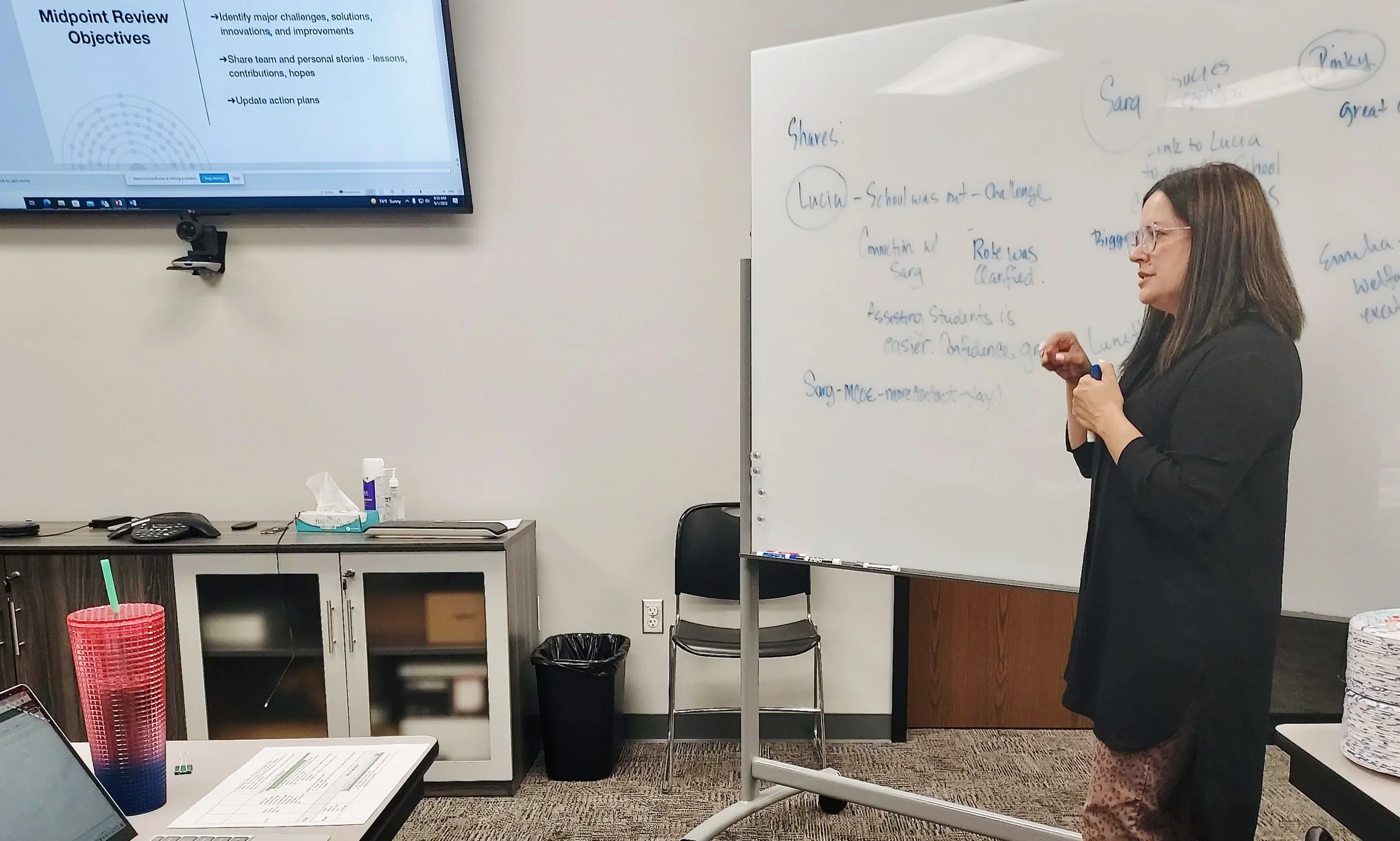Ruta Heni - Hidalgo, Mexico: A Life-Saving Innovation Inspired by Our 100-Day Challenge Methodology
Ariadna Rocío Martínez Ángeles is a police officer in the state of Hidalgo, Mexico. She heads the State Police’s Specialized Unit for the Prevention, Protection, and Assistance of Victims of Gender-Based Violence (GBV).
In a state that registered 20 femicides and 5,870 cases of domestic violence in 2021, it is not an easy job*.
Ariadna participated in the first and (up to now) only 100-Day Challenge in the state of Hidalgo in the municipality of Tula in 2020, funded by the United States Agency for International Development (USAID), which focused on increasing the case resolution rate of domestic violence cases.
The 100-Day Challenge launched in January 2020, and a little over a month later, the pandemic hit Mexico, causing widespread chaos for Mexicans and for their government institutions. Women and girls were particularly affected, with domestic violence rates soaring globally. In Mexico, femicide rates climbed 7.7% in the first half of 2020 when compared with the same period the previous year. Faced with this unprecedented surge in violence against women, the frontline team in the 100-Day Challenge had to think creatively and push the status quo in order to respond adequately to high-priority cases and avoid the collapse of life-saving services for victims, all while trying to stay safe and adapt to the new realities of the pandemic.
The police began to accept crime reports (denuncias) and distress calls (llamadas de auxilio) through WhatsApp.
The frontline team brought in health sector professionals to begin a collaboration with hospitals whereby victims can report gender-based violence directly in the hospital. An alliance was formed with local civil society organizations (CSOs) to jointly provide services for victims and identify high-risk or priority victims.
“The CSOs act as a bridge between the victims and the justice system; they are often the first point of contact.”
Ultimately, these new partnerships and ways of working led to a 299% increase in domestic violence case resolution rates in the middle of a pandemic.
The Aftermath
Months after the conclusion of the 100-Day Challenge, Ariadna was faced with a new and pressing challenge as a police officer: how to eliminate the inefficient, unnecessary, and life-threatening processes around reporting a missing person. These processes required relatives of a missing person to go to the Prosecutor’s Office in person to file a missing persons report and then wait 72 hours before the investigation and search could be formally initiated.
The 72-hour wait period is widely recognized as bad practice and is even unlawful and against international guidelines and protocol. The first 24 hours are crucial in locating missing persons, as vital investigative leads can be erased (CCTV) and lost (eyewitnesses may no longer be in the area). If the victim has been abducted and is still alive, the likelihood of finding them alive rapidly deteriorates with every passing hour.
But this doesn't stop it from occurring in Mexico, where the 72-hour grace period was common practice under the old Criminal Justice System, the argument being that the majority of people reported as missing turned up unharmed in the following hours or days. “Let’s give it a few hours; she's probably gone out drinking and is staying at the boyfriend's house” is something we're accustomed to hearing. The other (perverse) incentive for the 72-hour wait is that if an investigation is opened and the person is found alive and well a couple of hours later, there's a fair amount of paperwork for prosecutors to fill out to close the case.
Ariadna knew that changing practices and ways of working, even in the bureaucratic world of law enforcement, was possible thanks to her experience as a frontline team member of the 100-Day Challenge.
“During the 100-Day Challenge, my mindset changed, as was also the case for many others. We realized that we can’t protect victims without collaboration between the different institutions and without the help of civil society.”
With this experience, she learned about the enabling conditions that favor systems change (a sense of urgency, a clear and shared goal, trusting in the knowledge and experience of those on the frontline, and being open to experimentation, among others) and fully adopted some of the driving principles behind the methodology, such as collaborative problem-solving and multi-stakeholder engagement.
“I am a firm believer in the 100-Day Challenge. I get it. But institutional egos get in the way. It’s very difficult to break these barriers down, but the 100-Day Challenge was definitely a first step towards doing so; it gave us a taste of how to work differently and a path to start climbing.”
The Heni Route
Finding these missing women alive and well was, and is, a huge driver for Ariadna and her colleagues.
"That is our objective (to protect women and save lives). This innovation was born because we had a crisis on our hands of missing persons; it all started with a viral post through social media for a missing young woman".
This disappearance prompted outrage and citizen protests in the state, as the search to locate the victim was prolonged and, unfortunately, culminated in femicide. This crisis propelled Ariadna into action to come up with a way that her unit could save lives.
The “Heni Route” or Ruta Heni is a protocol designed to enable immediate search activities to commence without the need for the relatives to go to the Prosecutor's Office and for the subsequent wait for 72 hours for the investigation to be formally initiated. The protocol begins when an emergency call is made to 911 or a missing persons report is filed. The "Heni Route" is activated, and 911 notifies the state police, who then immediately contact the family to carry out the search in different areas: family, social, work, and relationships. This search is carried out with the support of two civil society organizations (Sonrisas Perdidas Hidalgo & Nadie Menos Hidalgo). If, through "Ruta Heni," the person is not located within the first 72 hours, the police channel the case to the Prosecutor's Office so that the corresponding investigation can begin.
"Out of the 10 missing persons reports we’ve received since the Heni Route has been implemented, we've managed to locate seven women alive within the first 72 hours", says Ariadna. With this innovation, searches are initiated immediately. No paperwork. No wait. The participation of civil society has been and continues to be vital in this joint effort: "They often lead and organize the searches and call us in when needed."
Ariadna has also led coordination between the Hidalgo State Police and foreign police forces, such as that of the State of New York, through the activation of "Heni Route” to locate a female US citizen in the state of Hidalgo. Likewise, for high-risk victims of domestic violence, her specialized unit of the police has coordinated with the Embassies of Argentina, Spain, and the United States to safeguard these victims swiftly and, with the support of the embassy, help them return to their countries of origin. This level of collaboration for a state that isn't on the US border is impressive and uncommon.
Ariadna doesn't plan to stop here, "I’m fortunate, my boss completely trusts me. I have the opportunity to test ideas, to do things differently”. We’ll be keeping in contact with Ariadna to see what she comes up with next!
The 100-Day Challenge implemented in Hidalgo in 2020 was made possible thanks to funding from the United States Agency for International Development (USAID) through its Promoting Justice Project (Projust).

















